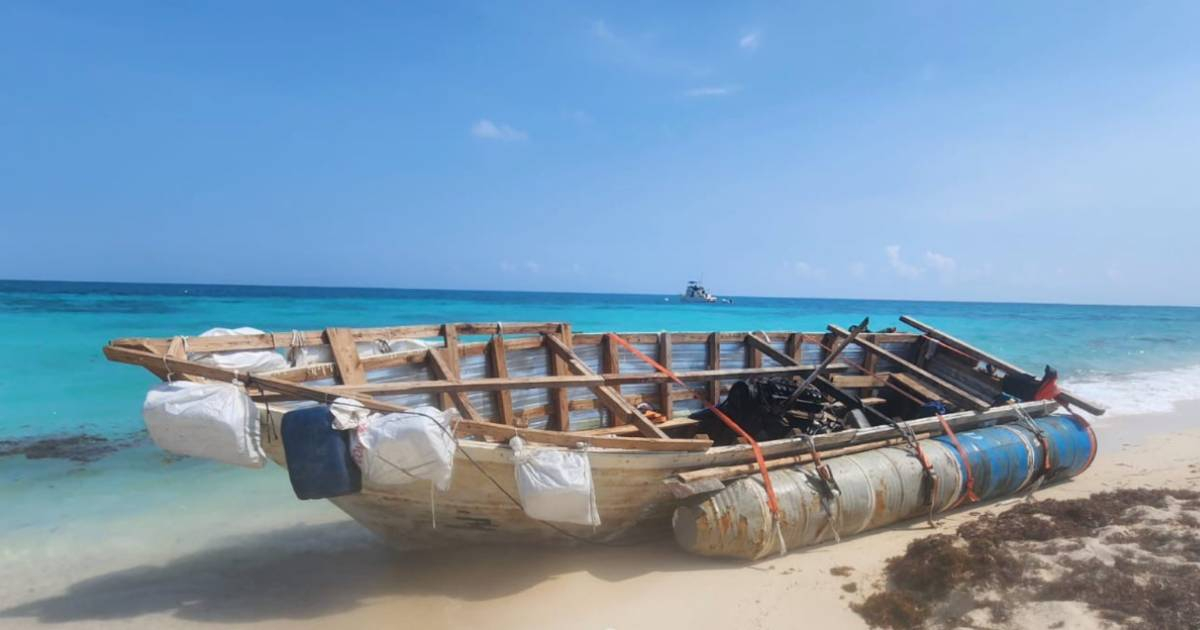
Related videos:
Amid the new government's actions in the United States to stop illegal immigration, the Border Patrol warned this Thursday that those who attempt to land by sea "will be returned" to their country of origin or their point of departure.
Through a statement posted on X, the head of the Miami Sector Border Patrol, Jeffrey Dinise, emphasized that those who enter the country illegally by sea will be returned, either to their country of origin or to the last country they departed from, as part of a stricter border control policy.
"Illegal maritime voyages on overloaded or homemade vessels are extremely dangerous and can be fatal. We are not only committed to the safety of individuals but also to the protection of national sovereignty," the official said while recalling that the Border Patrol is intensifying operations to curb illegal entry by sea.
This warning is part of a series of measures by the new Administration aimed at tightening immigration control in the U.S. and implementing the expedited deportation policy that was approved during Donald Trump's administration.
The U.S. government has also taken measures that grant greater powers to Immigration and Customs Enforcement (ICE) officials to quickly deport undocumented immigrants.
This "expedited removal" policy allows authorities to deport individuals who cannot prove they have been in the country for more than two years, without the need to go through the immigration court system.
In recent days, the government has mobilized fleets of military aircraft for mass deportations, 1,500 soldiers to reinforce land borders, while the Coast Guard (USCG) ordered an immediate deployment of naval assets at the maritime border with Cuba.
The specific areas of focus for the USCG include the southeastern border of the U.S., which extends into Florida, in order to deter and prevent mass migration from Haiti and Cuba.
The maritime border around Alaska, Hawai’i, and the U.S. territories, including Guam, the Northern Mariana Islands, American Samoa, Puerto Rico, and the U.S. Virgin Islands.
Also, the maritime boundary between the Bahamas and southern Florida, the southwestern maritime boundary between the U.S. and Mexico in the Pacific, and the maritime boundary between Texas and Mexico in the Gulf of Mexico.
Frequently Asked Questions about the Immigration Policy of the United States and Cuban Rafters
What measures has the United States taken to control illegal immigration by sea?
The United States has intensified operations by the Border Patrol and the Coast Guard to intercept and return migrants attempting to enter the country by sea. This includes expedited deportations and the mobilization of military aircraft and soldiers to reinforce maritime borders, especially in the southeastern region that includes Florida.
What are the consequences for Cuban rafters who reach the shores of the United States?
The Cuban rafters arriving in the United States are detained and face a deportation process. They are processed to be sent back to their country of origin with a five-year ban on legal re-entry to the U.S. Furthermore, authorities have strengthened policies to discourage illegal maritime journeys.
How does "expedited removal" affect undocumented immigrants in the United States?
The "expedited removal" policy allows for the rapid deportation of undocumented immigrants who cannot prove they have been in the country for more than two years, bypassing the immigration court system. This measure expands ICE's ability to carry out deportations without judicial intervention.
Why do Cubans continue to try to emigrate to the United States despite the risks?
Despite restrictive policies and the dangers of the sea journey, many Cubans continue to take risks due to the economic crisis and the lack of freedoms on the island. Desperation and the lack of legal options for emigrating drive many to seek better opportunities in the U.S.
Filed under: